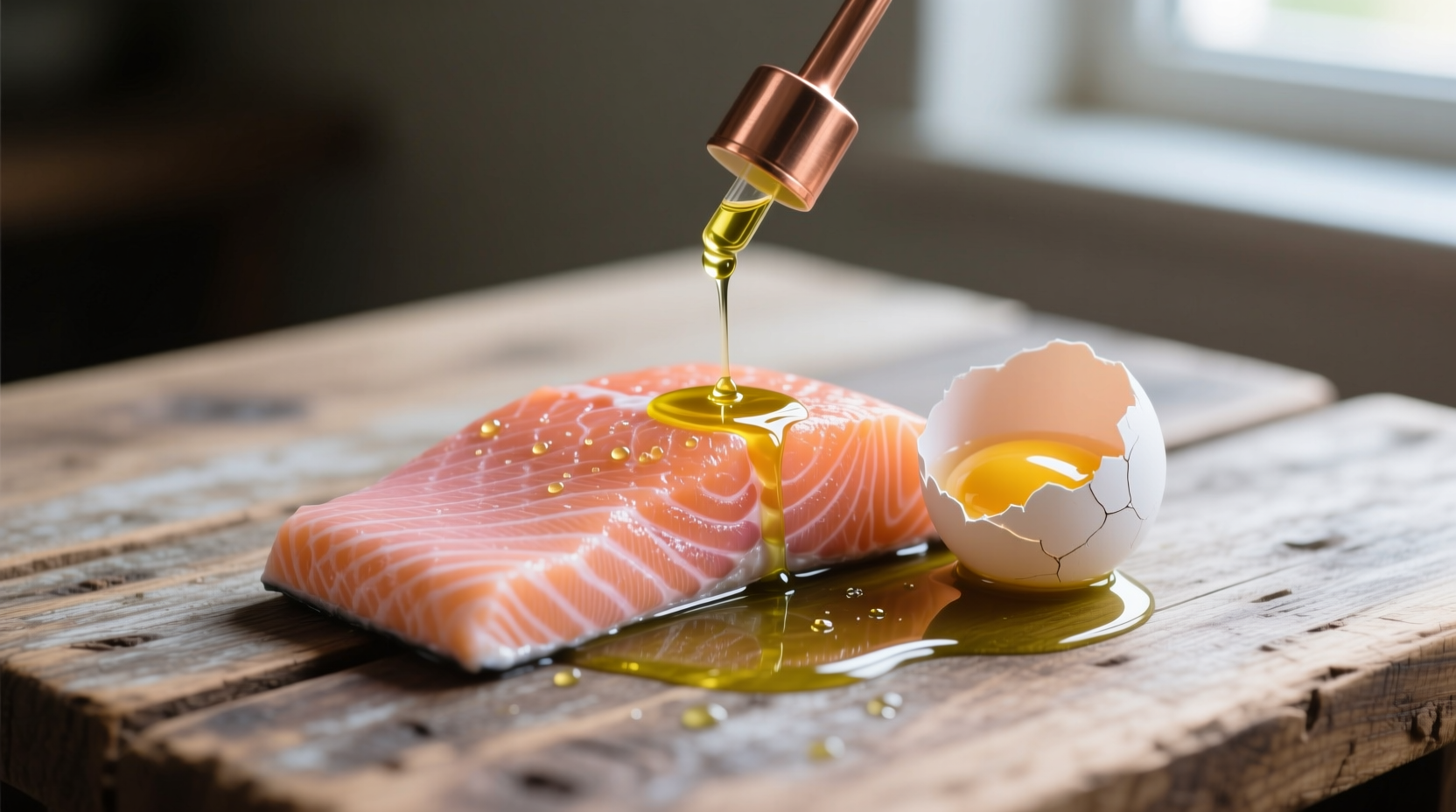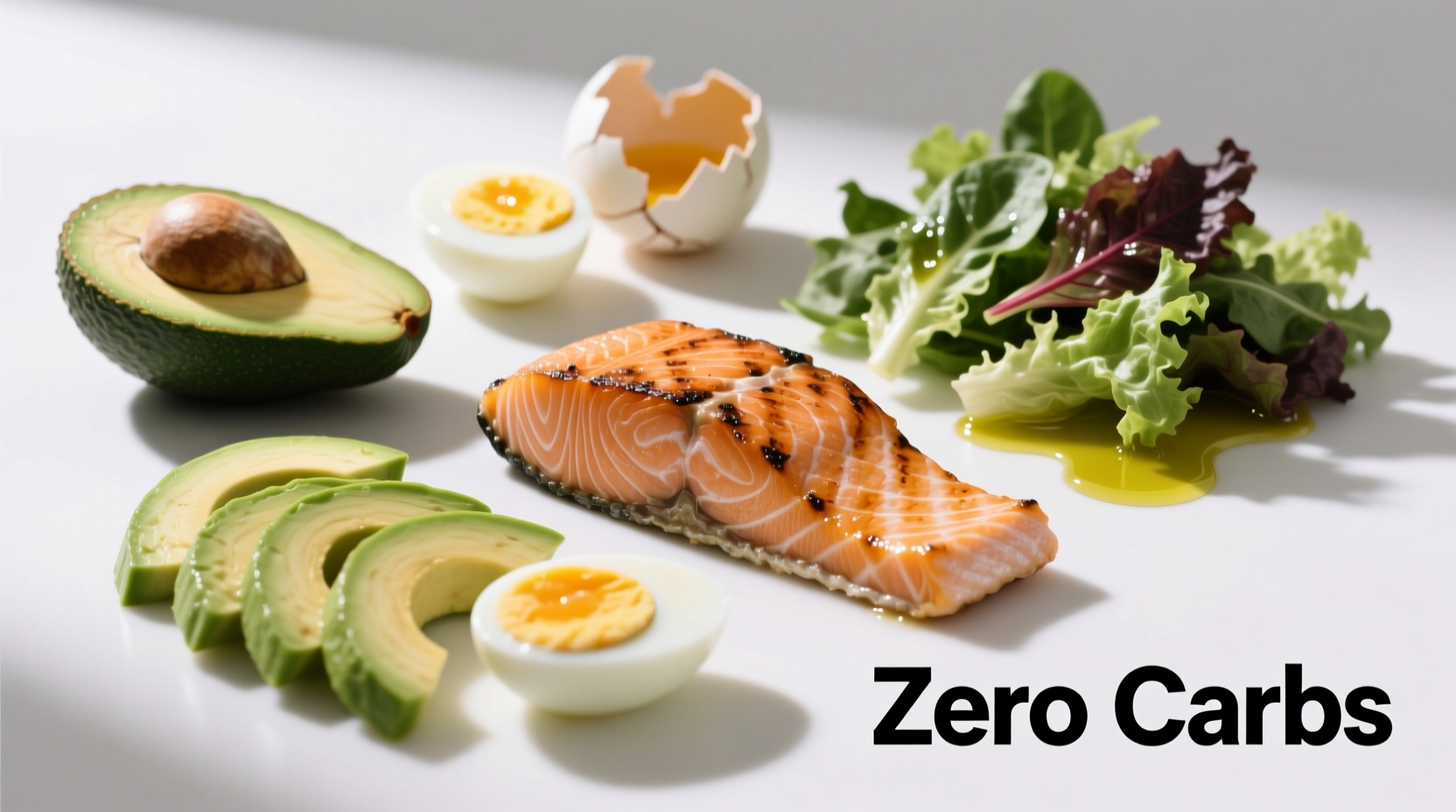If you're searching for what food has no carbs, the direct answer is: pure animal proteins and fats contain zero carbohydrates. This includes unprocessed meats (beef, chicken, pork), fish, eggs, and pure fats like olive oil and butter. Most whole plant foods contain trace carbohydrates, even vegetables commonly considered 'zero carb' like celery or spinach actually have minimal carbs (0.5-2g per 100g).
When following a strict ketogenic diet or managing conditions like diabetes, knowing which foods genuinely contain zero carbohydrates becomes essential. Many popular 'zero carb' lists circulating online contain inaccuracies that can derail your dietary goals. Let's examine the science-backed facts about truly carb-free foods and separate myth from reality.
Truly Zero-Carb Animal Proteins
Animal-based foods represent the only category containing genuinely zero carbohydrates. According to USDA FoodData Central, unprocessed meats, poultry, and seafood contain no measurable carbohydrates when analyzed in standard laboratory conditions:
| Food | Carbohydrates (per 100g) | Verification Source |
|---|---|---|
| Beef (80% lean) | 0g | USDA #170242 |
| Chicken breast | 0g | USDA #170250 |
| Salmon | 0g | USDA #170334 |
| Eggs | 0.7g | USDA #170195 |
Note that eggs contain trace carbohydrates (0.7g per 100g), making them technically not zero-carb but still extremely low-carb. Processed meats like sausages or deli meats often contain added sugars or fillers, so always check labels for hidden carbohydrates when exploring natural zero carb food options.

Zero-Carb Fats and Oils
Pure fats represent the other category of genuinely zero-carbohydrate foods. These include:
- Olive oil, avocado oil, coconut oil (0g carbs per serving)
- Butter and ghee (trace carbs in butter, 0g in properly clarified ghee)
- Animal fats like tallow and lard
The American Journal of Clinical Nutrition confirms that pure dietary fats contain no carbohydrates by molecular structure. However, context matters significantly here—when following a keto diet with zero carb foods, remember that processed 'fat bombs' or flavored oils often contain added sugars. Stick to unadulterated, single-ingredient fats for truly carb-free options.
Common Misconceptions About Zero-Carb Foods
Many foods are mistakenly labeled as zero-carb in popular diet circles. Let's clarify these misconceptions with scientific evidence:
- Vegetables like spinach and celery: Contain 1-3g carbs per 100g (USDA data)
- Broth and bone broth: May contain 1-2g carbs from natural sugars in bones
- Plain Greek yogurt: Contains approximately 4g carbs per 100g
- Most cheeses: Aged cheeses like cheddar have trace carbs (0.4g per 100g), while fresh cheeses contain more
The evolution of carb counting methods shows why confusion exists. In the 1970s, food composition databases were less precise, leading to oversimplified 'zero carb' classifications. Modern laboratory techniques can detect even trace carbohydrates, explaining why contemporary nutritional science recognizes that most whole foods contain minimal carbohydrates.
Practical Guidance for Zero-Carb Eating
When building meals around truly zero carbohydrate food sources, consider these practical tips:
- Read labels carefully: Look for 'sugars' and 'total carbohydrates' on nutrition facts panels
- Beware of hidden carbs: Soy sauce, mustard, and even some spices may contain added sugars
- Choose unprocessed options: Fresh meats directly from butchers rather than pre-marinated varieties
- Understand serving sizes: Even trace carbs become significant when consuming large quantities
- Track your intake: Use apps like Cronometer that reference USDA databases for accuracy
For those following therapeutic ketogenic diets for medical reasons, consult with a registered dietitian who specializes in low-carbohydrate nutrition. The National Institutes of Health emphasizes that extreme dietary restrictions require professional supervision to prevent nutrient deficiencies while pursuing carb-free food options for weight loss or medical management.
When Trace Carbs Matter
The significance of trace carbohydrates varies based on your dietary goals:
- Standard low-carb diets (50-130g carbs/day): Trace carbs are negligible
- Therapeutic ketogenic diets (under 20g carbs/day): Every gram counts
- Diabetes management: Individual carb sensitivity varies significantly
Research published in Nutrients journal shows that individual responses to carbohydrates vary widely based on metabolic health, gut microbiome composition, and genetic factors. This explains why some people can maintain ketosis with slightly higher carb intakes than others when exploring what food has no carbs for keto diets.











 浙公网安备
33010002000092号
浙公网安备
33010002000092号 浙B2-20120091-4
浙B2-20120091-4